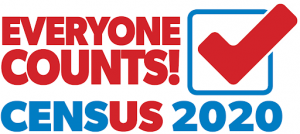
This is the second of a 2-part blog concerning the U. S. Census. Today we will cover security. The Census Bureau is protected by U. S. laws, and has gone to great lengths to prevent information hacking, so you can be assured of security with your answers. The following statements are taken directly from the U. S Census Bureau website:
The law is clear—no personal information from the U. S. Census can be shared.
Under Title 13 of the U.S. Code, the Census Bureau cannot release any identifiable information about individuals, households, or businesses, even to law enforcement agencies. The law states that the information collected may only be used for statistical purposes and no other purpose. National Archives and Records Administration can only release census records after 72 years. All Census Bureau staff take a lifetime oath to protect your personal information, and any violation comes with a penalty of up to $250,000 and/or up to 5 years in prison.
Your responses to the 2020 Census are safe. Your responses to the 2020 Census are protected by law. Under Title 13 of the U.S. Code, the U.S. Census Bureau cannot release any information that identifies you individually. Every Census Bureau employee and contractor is sworn for life to always protect your information.
The Census Bureau uses your information for statistical purposes only, such as helping to make informed decisions for Medicaid, new hospitals, schools, roads, lunch programs, and much more.
Responses to the 2020 Census are secure. The Census Bureau has a team of cybersecurity experts who monitor and protect all agency technology around the clock. The Census Bureau’s cybersecurity meets the highest standards for protecting your information. From the moment we collect your responses, our goal — and legal obligation — is to keep them safe. The Census Bureau’s technology is protected by strong authentication and authorization methods and is fully “locked down” so that it can only be accessed by fully vetted individuals who are trained in data and cyber security. These individuals make sure we keep pace with evolving threats and security advancements.
No matter how you respond, your information remains protected. The Census Bureau designed the information collection process with layers of security to keep your information safe and secure.
Whether you respond online, by phone, by mail, or if a census employee comes to your door, your information is collected, transmitted and kept secure throughout the process. When you are on our secure website, you can verify its’ safe by making sure the address begins with ‘HTTPS’ and includes a lock symbol. If you’re visited by a census employee, know that the technology they use has the same strong security controls, and is fully compliant with the standards mandated for Federal systems.
The Census Bureau works with the federal intelligence cyber community and industry experts to stay abreast of emerging cyber threats to continuously update protections and safeguards for your information.
Phishing
Phishing is the criminal act of trying to get your information – usernames, passwords, social security numbers, and bank account or credit card account details – by pretending to be an entity you trust. Phishing e-mails often direct you to a website that looks real, but is fake, and may be infected with malware.
What questions WILL NOT be asked by the Census Bureau?
~ Your Social Security number.
~ Money or donations.
~ Anything on behalf of a political party.
~ Your bank or credit card account numbers.
If someone claiming to be from the Census Bureau contacts you via email or phone and asks you for one of these things, it’s a scam, and you should not cooperate.
The U.S. Census Bureau recommends responding to scams in the following manner:
Should you suspect fraudulent activity, please do the following –
If you get mail:
~ check that the return address is Jeffersonville, Indiana
If you continue to question the authenticity of the letter or form call the Regional Office for your state to verify the household survey.
New York Regional Office
